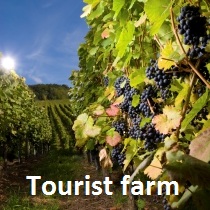SloveniaHolidays.com > Info > Useful Information
Language
The official language in Slovenia is Slovenian, the mother tongue of approximately 2.4 million people. 1.85 million of them live in Slovenia, around 140,000 in the border areas of neighbouring countries (Italy, Austria, Hungary and Croatia) and approximately 250,000 living in diaspora in Germany, France, Canada, the USA, Argentina, Australia and the former Yugoslav countries. Slovenian is the second language of members of the Hungarian and Italian minorities in Slovenia
Slovenian is the westernmost and northernmost South Slavic language. Having been influenced by four major European language groups (Germanic, Romance, Ugrofinnish and Slavic), it is one of the most complicated languages in Europe. It differs from other Slavic languages in phonetics, morphology and lexicology. It has retained the dual grammatical number and neutral grammatical gender. Foreigners are also often stumped by the many exceptions in declension and conjugation. The Slovenian language also has many similarities with Serbian and Croatian.
The Slovenian alphabet has 25 letters, including three special letters: č, š, ž. The Latin alphabet is used for writing.
Although Slovenia is small, experts have isolated several well-formed dialects. The many differences between the dialects were caused by natural barriers and poor roads (which, we assure you, have been vastly improved). The Slovenian language is thus divided into the koroška, primorska, rovtarska, dolenjska, gorenjska, štajerska and panonska groups, within which a total of 46 dialects have formed.
Recently, Slovenian has become more and more influenced by non-neighbouring languages. Youths are particularly fond of English.
English is taught in all primary and secondary schools. Some schools also teach German, French or Italian.







